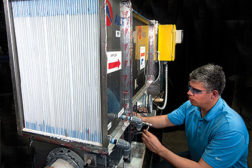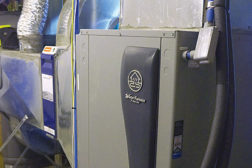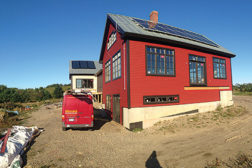Home » net zero energy
Articles Tagged with ''net zero energy''
Project is a First in California, Model for State’s ‘Big Bold Goal’
Read More
Geothermal Systems and Net-zero Design
New York Residential Development Taps into Geothermal’s Benefits
April 6, 2015
April 1, 2015: CEC Awards Bosch-Led Team $2.8 Million to Demonstrate DC Microgrid
Bosch DC Microgrid Said to Enable a Simpler Way to Achieve Net Zero Energy
April 1, 2015
Geothermal a Popular Option in Zero-net-energy Projects
Ground-loop Technology Proving Effective in Zero-net Installations
Read More
Feb. 5, 2015: Bosch Equips Net Zero Community with Geothermal, Hot Water Solutions
Company Helps to Launch Housing Community with Optimum Energy Efficiency
February 5, 2015
Nov. 10, 2014: NREL and Army Validate Energy Savings for Net Zero Energy Installations
Net Zero Energy Installations Could Save Millions a Year in Energy Costs
November 10, 2014
First Net-Zero Classrooms Installed in San Diego
The $2 Million Project Replaces Six 25-Year-Old Temporary Classrooms
October 6, 2014
Sept. 17, 2014: Zero Energy Building Revenue Expected to Exceed $1.4 Trillion Annually by 2035
Advances in Building Envelope Technology Are Helping to Drive the Market
September 17, 2014
Solar Applications Finding a Home in Residential HVAC
Photovoltaic Investment Paying Dividends in All Corners of the Nation
Read More
Copyright ©2024. All Rights Reserved BNP Media.
Design, CMS, Hosting & Web Development :: ePublishing








